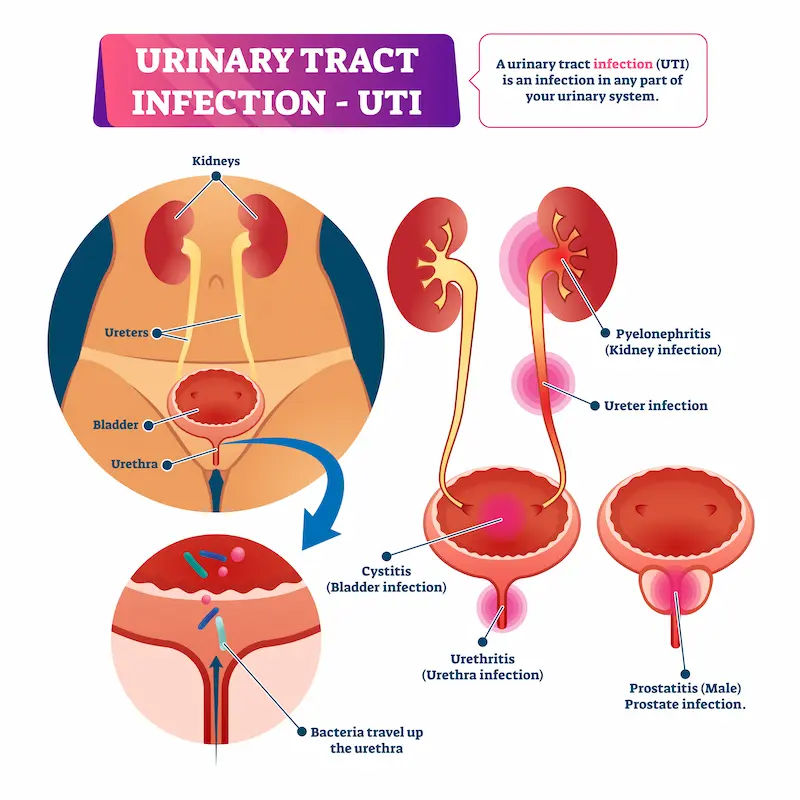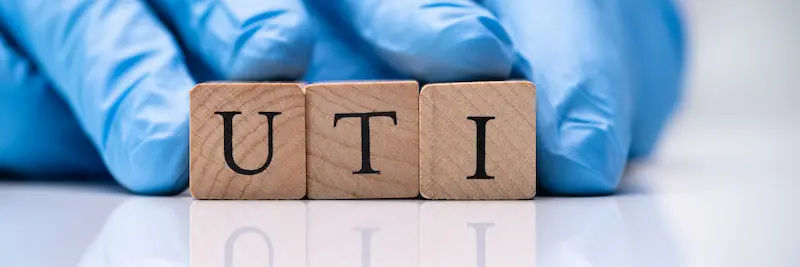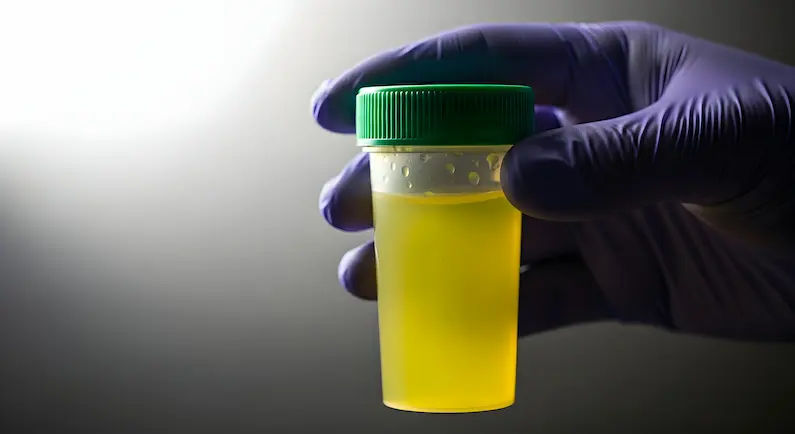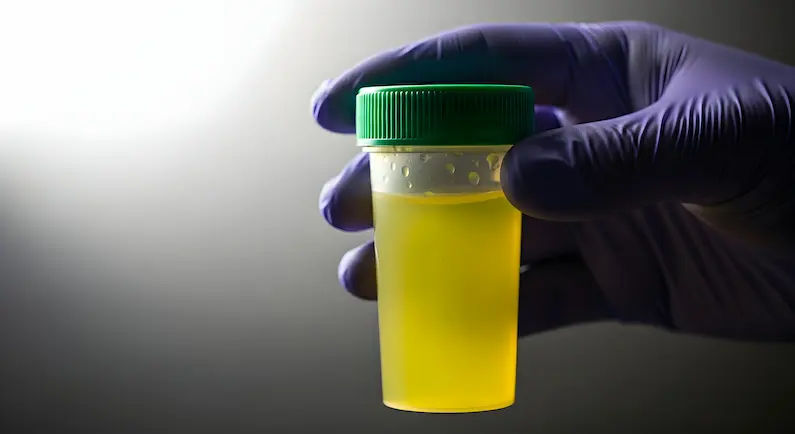Your Guide to a Bladder-Friendly Diet Foods for Optimal Urinary Health
Discover a bladder-friendly diet with foods that support urinary health, prevent irritation, and promote kidney and bladder wellness. Learn which foods to eat and avoid for optimal urinary function.

Written by Dr. Md Yusuf Shareef
Reviewed by Dr. Rohinipriyanka Pondugula MBBS
Last updated on 13th Jan, 2026
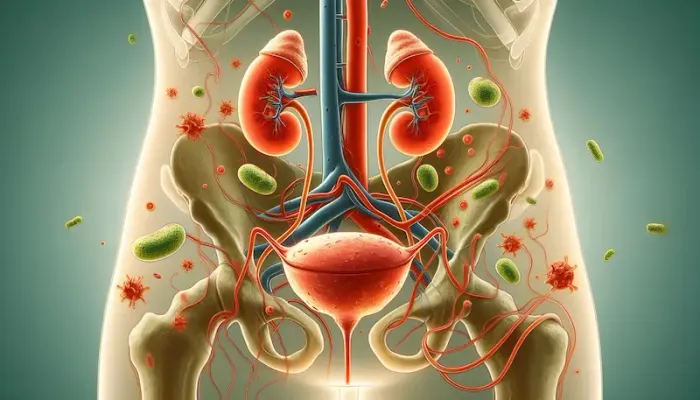
Introduction: The Direct Link Between Diet and Urinary Health
Your urinary system is a finely tuned filtration plant, and what you consume directly influences its efficiency and comfort. Many of us don't think about our urinary health until a problem arises, like a burning sensation or frequent, urgent trips to the bathroom. However, proactive dietary choices can be a powerful tool for prevention and maintenance. This guide dives deep into the world of nutrition for your kidneys, bladder, and urethra. We'll explore the science behind which foods act as soothing allies and which can be potential irritants, disrupting your system's delicate balance. Whether you're managing a chronic condition like interstitial cystitis, recovering from a UTI, or simply aiming for optimal wellness, understanding this connection is the first step. This article will provide a clear, actionable roadmap, empowering you to make informed choices that support your body's natural defenses and promote long-term urinary health.
The Hydration Foundation: Why Water is Your #1 Ally
Before we discuss specific foods, we must address the most critical component of urinary health: water. Adequate hydration is non-negotiable. Think of water as the essential solvent that dilutes urine and ensures a steady, gentle flow through your urinary tract. This constant flushing is vital because it helps prevent bacteria from clinging to the bladder walls and multiplying, which is a primary cause of infections (UTIs).
When you're dehydrated, your urine becomes concentrated—darker in colour and stronger in odor. This concentrated urine can be irritating to the sensitive bladder lining, potentially worsening symptoms of overactive bladder or interstitial cystitis. A good rule of thumb is to drink enough water so that your urine is a pale straw colour throughout the day. While individual needs vary, aiming for 6-8 glasses is a standard recommendation. Remember, the goal is consistent sipping, not chugging large volumes at once.
Consult a Urologist for the best advice
Power-Up Your Plate: Top Foods to Support Urinary Health
The Cranberry Conundrum: Separating Fact from Fiction
For decades, cranberry juice has been the go-to home remedy for UTIs. The science behind it involves compounds called proanthocyanidins (PACs), which may prevent certain bacteria like E. coli from adhering to the urinary tract walls. However, it's crucial to understand the nuances. Most commercial cranberry juices are loaded with added sugars, which can actually feed bacteria and be counterproductive. The benefits are linked to unsweetened cranberry juice or supplements with a standardised PAC content. It's more effective as a preventive measure than a treatment for an active infection. For true UTI prevention, consider a small glass of unsweetened juice or a high-quality supplement after consulting your doctor.
Probiotics: Cultivating a Healthy Gut for a Healthy Bladder
The health of your gut microbiome is intricately linked to your urinary tract. Probiotics, the "good" bacteria found in yoghurt, kefir, kimchi, sauerkraut, and supplements, help maintain a balanced environment. By promoting a healthy gut, they can crowd out harmful bacteria that might travel to the urethra and cause infections. Specific strains like Lactobacillus have been studied for their role in supporting urinary health, particularly in women.
Anti-Inflammatory All-Stars: Fruits and Vegetables
Chronic inflammation can exacerbate bladder issues. Incorporating a rainbow of anti-inflammatory foods can be profoundly beneficial, such as:
• Berries: Blueberries, strawberries, and raspberries are packed with antioxidants that combat inflammation.
• Leafy Greens: Spinach, kale, and Swiss chard are rich in vitamins and minerals that support overall cellular health.
• Colourful Veggies: Bell peppers, squash, and carrots provide essential nutrients that help the body repair and maintain tissues.
Fibre-Rich Foods: Preventing Constipation to Ease Bladder Pressure
This is a connection often overlooked. The colon is located directly behind the bladder. When you're constipated, a full colon can press against the bladder, reducing its capacity and irritating it, leading to increased urgency and frequency. A diet for overactive bladder should include ample fibre from sources like whole grains (oats, quinoa), legumes (beans, lentils), and vegetables to ensure regular bowel movements and reduce this physical pressure.
Foods and Drinks to Limit or Avoid for a Happy Bladder
Just as some foods heal, others can irritate. Identifying your personal triggers is key, as sensitivity varies.
The Usual Suspects: Caffeine, Alcohol, and Spicy Foods
These are common bladder irritants. Caffeine (in coffee, tea, soda, and chocolate) is a diuretic, increasing urine production and potentially acting as a direct stimulant to the bladder muscle, causing spasms. Alcohol has a similar diuretic and irritating effect. Spicy foods containing capsaicin can be problematic for some individuals, passing through the system and causing discomfort.
Acidic Foods: Understanding Their Impact on Bladder Lining
For people with sensitive bladders, highly acidic foods can feel like pouring lemon juice on a cut. Common culprits include:
1. Citrus fruits and juices (oranges, lemons, grapefruits)
2. Tomatoes and tomato-based products
3. Vinegar
4. Pineapple
This doesn't mean you must eliminate them entirely, but moderating intake and noticing how you feel afterward is wise.
Artificial Sweeteners and Carbonated Drinks: Hidden Irritants
Many people find that artificial sweeteners like aspartame, saccharin, and sucralose can trigger bladder symptoms. Similarly, the carbonation in sodas and sparkling waters can irritate the bladder lining in sensitive individuals. Opting for still water and using natural sweeteners like a small amount of honey or maple syrup (in moderation) may be better choices.
The Role of High-Sodium Foods in Bladder Health
A high-sodium diet can lead to water retention and bloating. This excess fluid can increase blood pressure and put additional strain on the kidneys. For bladder health, reducing processed foods, canned soups, and salty snacks can help manage overall fluid balance and reduce unnecessary stress on the urinary system.
Putting It All Together: A Sample Bladder-Friendly Meal Plan
Here’s a simple one-day example to inspire you:
• Breakfast: Bowl of plain Greek yoghurt (probiotics) with blueberries (antioxidants) and a sprinkle of oats (fibre).
• Lunch: Large salad with mixed greens, grilled chicken, carrots, and a light olive oil-based vinaigrette (avoiding high-acid dressings).
• Snack: A pear and a handful of almonds.
• Dinner: Baked salmon (anti-inflammatory omega-3s) with quinoa (fibre) and steamed green beans.
• Beverages: Water and herbal teas like peppermint or chamomile throughout the day.
Beyond Diet: Lifestyle Habits for Comprehensive Urinary Wellness
Diet is a cornerstone, but other habits are equally important. Practice good bathroom hygiene (wiping front to back), urinate shortly after intercourse, and avoid holding your urine for prolonged periods. Wearing breathable cotton underwear can also help. If you are experiencing persistent symptoms, it’s essential to seek professional advice. If symptoms like pain, burning, or blood in urine persist beyond two weeks, consult a doctor online with Apollo24|7 for further evaluation. They can rule out other conditions and provide a personalised treatment plan.
Conclusion: Empowering Your Health Through Smart Food Choices
Navigating the world of nutrition for urinary health doesn't have to be overwhelming. By focusing on whole, nourishing foods and being mindful of potential irritants, you can take significant control over your comfort and well-being. Remember, consistency is more impactful than perfection. Start by increasing your water intake and adding one or two bladder-friendly foods to your daily routine. Pay attention to how your body responds. This journey is about empowerment, giving you the knowledge to make choices that reduce irritation, support your body’s natural defenses, and contribute to a healthier, happier urinary system. If your condition does not improve after trying these methods, book a physical visit to a doctor with Apollo24|7 to get a comprehensive assessment and tailored guidance.
Consult a Urologist for the best advice
Consult a Urologist for the best advice

Dr Anupam Sharma
Urologist
18 Years • MBBS, MS(Gen Surgery), DNB (Urology)
Delhi
Apollo Hospitals Indraprastha, Delhi
(25+ Patients)

Dr. Prabir Basu
Urologist
19 Years • MBBS, MS General Surgery, DNB Genito-Urinary Surgery
Jodhpur Park
Dr. Prabir Basu urology clinic, Jodhpur Park
(200+ Patients)

Dr Shivakumar M P
General Physician/ Internal Medicine Specialist
31 Years • MBBS MD
Bengaluru
Apollo Clinic, JP nagar, Bengaluru

Dr. Sudhakar G V
Urologist
25 Years • MBBS, MS(Gen.Surgery), DNB Urology
Bengaluru
Apollo Clinic, JP nagar, Bengaluru

Dr. Barun Kumar
Urologist
12 Years • MBBS MS MCH UROLOGY DNB GENITOURINARY SURGERY
Guwahati
Apollo Clinic Guwahati, Guwahati
Consult a Urologist for the best advice

Dr Anupam Sharma
Urologist
18 Years • MBBS, MS(Gen Surgery), DNB (Urology)
Delhi
Apollo Hospitals Indraprastha, Delhi
(25+ Patients)

Dr. Prabir Basu
Urologist
19 Years • MBBS, MS General Surgery, DNB Genito-Urinary Surgery
Jodhpur Park
Dr. Prabir Basu urology clinic, Jodhpur Park
(200+ Patients)

Dr Shivakumar M P
General Physician/ Internal Medicine Specialist
31 Years • MBBS MD
Bengaluru
Apollo Clinic, JP nagar, Bengaluru

Dr. Sudhakar G V
Urologist
25 Years • MBBS, MS(Gen.Surgery), DNB Urology
Bengaluru
Apollo Clinic, JP nagar, Bengaluru

Dr. Barun Kumar
Urologist
12 Years • MBBS MS MCH UROLOGY DNB GENITOURINARY SURGERY
Guwahati
Apollo Clinic Guwahati, Guwahati
More articles from Urinary Tract Infections
Frequently Asked Questions
1. Is coffee bad for your kidneys and bladder?
While moderate coffee consumption is generally safe for most people, its caffeine content can act as a bladder irritant and diuretic, potentially increasing urgency and frequency. For those with existing kidney conditions, it's best to consult a doctor.
2. What is the fastest way to flush your bladder?
The most effective way to 'flush' your bladder is to drink plenty of water. This dilutes urine and encourages frequent urination, which helps clear bacteria from the urinary tract.
3. Are bananas good for urinary health?
Yes, bananas are generally a great choice. They are a low-acid fruit, high in potassium and fibre, which can be soothing to the bladder and help prevent constipation.
4. What foods soothe an inflamed bladder?
Non-acidic, anti-inflammatory foods are best for soothing bladder inflammation. Think pears, bananas, winter squash, lean proteins like chicken and fish, and whole grains like oats.
5. Can changing my diet really prevent UTIs?
While not a guarantee, a healthy diet for UTI prevention can significantly reduce your risk. Staying hydrated, consuming probiotics, and avoiding excessive sugar and irritants create an environment that is less hospitable to infection-causing bacteria.
